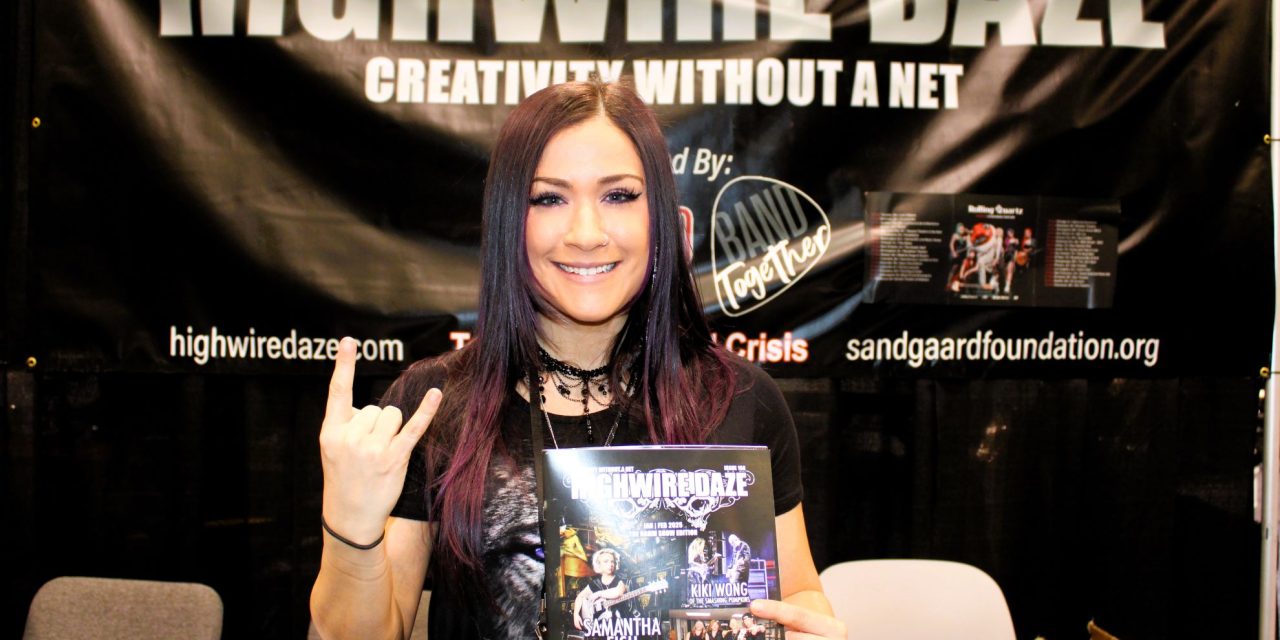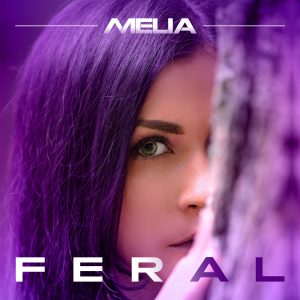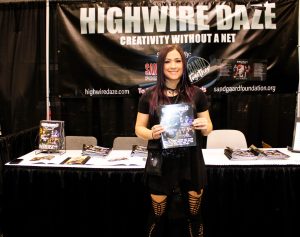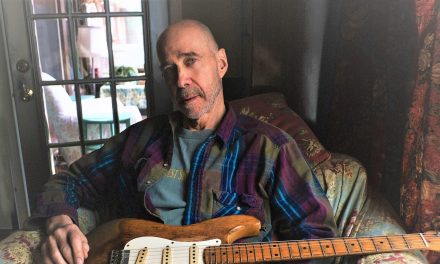
Melia: The NAMM Show 2025 Interviews

 Melia: The NAMM Show 2025 Interviews
Melia: The NAMM Show 2025 Interviews
Melia is a dynamic force in the indie rock scene, celebrated for her powerful vocals, captivating lyrics, and exceptional guitar skills. Her just released Feral EP presents an artist at the very height of craft, presenting compelling songs filled with imagination, emotion, and intrigue. Among her passions is bringing attention and putting an end to the ongoing opioid crisis that has had a devastating effect on her own family and friends. One of her songs Sleeping Beauty on her Skeletal Remains EP directly addresses the epidemic facing the world today. Highwire Daze caught up with Melia at The NAMM Show to discuss the songs found within the realm of Feral, her support for the fight against opioid addiction, what she would like listeners to remember the most about her music, and more! Read on…
What are you looking forward to the most about NAMM today?
I am looking forward to checking out all the new gear that everybody has. I’m really excited for that. I love looking at gear. And tonight, at the PRS Party – I’ll be going there – and I’m excited to see everybody there.
Give everyone a little background and what you’ve done prior to the release of your new EP Feral.
So, prior to Feral, my first EP was Soundproof Walls, and I did that in my hometown. The next one was Skeletal Remains – and I did that in New York City with Kevin Killen. And I’ve just been releasing and writing music. And I wrote a ton of music for Feral over the pandemic. And that’s kind of how I got here.

I wrote the song Feral during the pandemic. I was struggling with a lot of anxiety issues. Sometimes I did this thing where I just kind of self-isolate – a lot of people kind of do when they get stuck in the mode. There was a point where I felt like I just didn’t want to be around people – I just wanted to be with the dogs. And the pandemic made that very evident for me when I was all couped up at home. It was kind of weird. It was like I really didn’t want to be like that – at the same time I got sucked into that – of not wanting to leave the house.
I wrote Feral – I didn’t think it was good – I thought it sucked. Then I played it for my parents, and they were like, “What? You’ve gotta do that one!” And I was like, “Yeah? I really don’t think it’s any good. I’m just kind of bored writing music.” And it just took off there from there.
The first song on Feral is called Werewolf. Tell me the inspiration behind that one?
So, Werewolf – I had the guitar line first. The guitar line at the beginning – that’s kind of what I wrote the song around. And the song is about betrayal and how people can change. I kind of used creepy metaphors – which is my go-to. So, I wanted to use the term Werewolf, and it fit really perfectly with what I was going through.
The last song Horse You Rode In On – tell me about that song and the inspiration behind it.
I was going through a period of time where I was getting betrayed by multiple people at the same time. Not really betrayed, but I had a job, and I was trying to leave, and they were being jerks. And then there was someone else that was being kind of weird. And there was a guy I was seeing. I was kind of at a point where I’m really nice all the time – and I finally got some backbone. I was like – can I say it? “Fuck off!”
And it’s funny, because I wrote that song, and then I was like “This is going to be really hard – is there another way I can switch the word out?” And then I was like there’s not really another way to say it. Even my producer was like you can’t say anything else but, “Fuck you, and the horse your rode in on.” So yeah, I wrote that song out of anger, and I think it’s something that a lot of people could resonate with at some point in their lives. My grandfather would kill me, but I really didn’t have another way to say it. (Laughs)

My mom’s fine with it. See, my grandpa was really religious. He used to get mad at me when I would say the “F” word onstage. I was kind of like I didn’t know if I would do it and then I was like, you know what? I think I have to! Because I think that everyone at some point of life has felt that way about some situation. And there’s no other way to say it – and it’s just a word. So, I just kind of went with that.
Let’s talk about the opioid epidemic – how it has affected you – you actually wrote a song about it on your previous EP.
So, addition – it’s something I’ve seen in family and friends. I’ve seen kids that I’ve gone to school with – they have died from it – overdosed from it. And I know a lot of people through other people that have been affected by it. It’s a huge issue. Going through what I went through seeing my uncle struggle. I have a big part of my heart that really wants to help people that are struggling with addiction, and just all the different stereotypes that go along with that. They are amazing people and they’re sick and they’re going through something really serious. I think they need more support – and I know it’s a really hard thing to go through with addicts – but I really want to put an end to the opioid crisis. I think it’s really wrecked a lot of families, and they need our support.
What would you like a listener to remember after hearing your music for the very first time?
I want them to remember how it made them feel. I think the emotional connection is something I’ve been very authentic about in my music. And the goal would be that someone could relate to my music the way I related to others growing up – because it helps me get through life, and I hope it will help them get through life in their own way.
Melia supports The Sandgaard Foundation – Band Together To End The Opioid Crisis. Find out more about The Sandgaard Foundation and how you can help here: https://www.sandgaardfoundation.org/
(Interview by Ken Morton – Photos by Denise Johnson)
Melia on Instagram










 Melia: The NAMM Show 2025 Interviews
Melia: The NAMM Show 2025 Interviews





